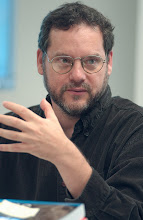
At the recent Psychology-Ecology-Sustainability
conference at Lewis and Clark College, I attended a workshop on the ethics of
deep ecology. The facilitator of this one-hour session distributed a one-page handout with the eight core
principles of the deep ecology movement. He then posed the question of whether we found it easy or hard to accept each particular principle.
My own response in the group was that while I might have worded some of these classic principles a bit differently, I have been strongly influenced by all of them—and they have shaped my work in creating an environmental activist training
program at Antioch University New England. I then explained that my one big worry about these principles is that there is nothing explicit in them that articulates a clear ethical commitment to social justice, human rights, and the humane treatment of other human beings. I said this could leave these great principles of deep ecology ungrounded or unconnected in practice to an appropriate social ethics. If individual deep ecologists make these connections between social and ecological ethics then this makes for a powerful ethical system. However, I worried out loud about the potentially nasty possibilities if a connection between social and ecological ethics was not made.
By way of example, I pointed out that a few Nazi leaders, and the many
German environmentalists that ended up supporting the Third Reich, held to many if not most of the deep ecology principles--and clearly did not connect them to a humane social ethic. At this point, the facilitator interrupted me and said that his workshop on deep ecology principles was no place to raise such questions and that I was being disruptive. He might have a point there, though that was not my intent. Perhaps raising this issue was not helpful in an hour-long workshop among people who were mostly new to any consideration of the principles of deep ecology. That seems like a possibility to me upon reflection.
What disturbed me was that when the facilitator and I were talking afterwards, he argued that it was very important to keep the eight deep ecology principles completely separate from any clearly articulated social ethics. He said any attention to social ethics would detract from a commitment to working for the earth. He repeatedly said that people who care about social justice “can’t be good allies for the Earth.” He also said that trying to add some stated commitment along these lines to the deep ecology principles would take all the power and clarity out of them. He said it was his experience that no one resonates with a combination of social and environmental ethics and it had to be one or the other if your were going to inspire people and be an effective organizer.
Frankly, I was more than a bit dismayed by his claim that it would ruin the deep ecology and sustainability movement to help clarify a deep ecology position on social ethics. Nor did I agree with him that people would never resonate with such an integration of social and ecological ethics. In my keynote address the next day, I added a section right in the beginning of my talk that would help clarify my own integrative view of social and ecological ethics. To do this, I told a story about a small community organizing campaign in a predominantly African-American neighborhood in Seattle some years back. The goal of this particular community coalition of churches, civic groups, and small-business leaders was to get the city council to change the name of the main street running through their neighborhood. They wanted to change the name of this street from the “Empire Way” to the “Martin Luther King, Jr. Way.” Here's what I said about this campaign during my
talk:
After a few months, they got the city council to agree. The night after the vote, the neighborhood organizers invited community members to a large Baptist church for a victory celebration. That night, Vincent Harding, a long-time associate of King's, spoke to the assembled community. He urged everyone there to fully embrace the deep symbolism of what they had just accomplished. As he said, “You have now changed the road you travel from the Empire Way to Martin’s way.” That has always stuck with me. Isn’t that exactly the challenge we all face today—changing the road we travel from the Empire Way to Martin’s Way?
For me personally, this means doing whatever I can to help weave together the “Beloved Community” that King so often invoked as his deepest, long-range vision. My sense is that this is also the deep, long-range vision of almost everyone here at this conference. I’m guessing that most of us here want to create a beloved community that includes in its circle of moral concern all people alive today, all future generations, and the more-than-human world that makes up our larger biospheric community.
Interestingly, in contrast to the workshop facilitator's fear, this integrative ethical formulation resonated deeply with the participants at the conference and prompted a standing ovation at the end of my talk. This was very heartening to me. I urge us all to find a way to integrate a coherent, strong social ethic along with a profound commitment to deep ecological principles. I don’t want to pick one or the other. Nor do I think this either/or mentality is the best guide for our work in the future.
 Last April, I had the opportunity to do a twenty-minute-plus radio interview for ACT Radio, a bi-monthly half-hour program on KTEP--the NPR station in El Paso, Texas. It was broadcast as their Earth Day edition on April 22, 2007.
Last April, I had the opportunity to do a twenty-minute-plus radio interview for ACT Radio, a bi-monthly half-hour program on KTEP--the NPR station in El Paso, Texas. It was broadcast as their Earth Day edition on April 22, 2007.

